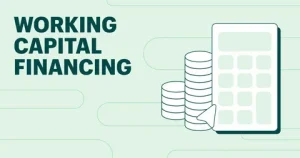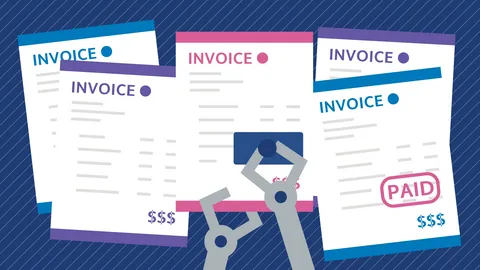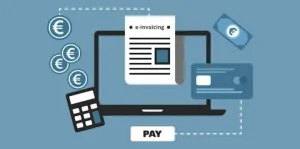Finance
Understanding the Expansion of Decentralized Finance

The financial world is undergoing a significant transformation, with Decentralized Finance (DeFi) emerging as a revolutionary force. Over the past few years, DeFi has gained remarkable momentum, offering innovative ways for people to engage with financial services without relying on traditional banking systems. But what exactly is fueling the growth of decentralized finance, and why should investors be paying attention?
This article will explore the rapid growth of decentralized finance (DeFi), analyze its potential for investors, and examine the key factors driving its expansion. We will also provide insights into the risks and opportunities associated with this evolving sector.
What is Decentralized Finance (DeFi)?
Decentralized Finance, commonly referred to as DeFi, is a blockchain-based form of finance that eliminates the need for intermediaries such as banks, brokers, and other centralized institutions. Through the use of decentralized networks and smart contracts, DeFi allows individuals to access financial services like lending, borrowing, trading, and investing directly with one another.
At the heart of DeFi is the use of blockchain technology—an immutable, transparent, and distributed ledger that records all transactions. The most popular blockchain for DeFi applications is Ethereum, which allows developers to build decentralized applications (dApps) that automate financial processes.
The Rise of Decentralized Finance
DeFi has grown at an unprecedented rate since its inception. In 2017, the total value locked (TVL) in DeFi protocols was a mere $4 million. By 2020, that number surged to $13 billion, and by 2024, TVL exceeded $200 billion. This remarkable growth is attributed to several key factors:
- Financial Inclusivity: DeFi provides financial services to anyone with an internet connection, allowing people in unbanked or underbanked regions to access banking, credit, and investment tools that were previously unavailable to them.
- Greater Transparency: Unlike traditional financial systems, which can be opaque and inaccessible, DeFi operates on public blockchains where all transactions are transparent and verifiable by anyone.
- Reduced Costs: By removing intermediaries, DeFi reduces the fees associated with transactions, loans, and other financial activities.
- Innovation in Yield Farming and Staking: DeFi introduces innovative financial products like yield farming and staking, which provide new ways to earn returns on investments.
Benefits of Decentralized Finance Growth for Investors

Photo by Ibrahim Boran on Unsplash
The explosive growth of DeFi presents several opportunities for investors. Understanding these benefits can help investors make informed decisions and potentially capitalize on the DeFi revolution:
- Higher Yields: Traditional savings accounts and fixed-income securities often offer low returns. DeFi protocols, on the other hand, offer higher interest rates on loans and deposits, thanks to their efficient, decentralized nature.
- Accessibility and Control: DeFi allows investors to retain full control of their assets. Investors can directly engage with financial services without relying on intermediaries or central banks. This autonomy can be appealing to individuals who prioritize privacy and security.
- Diverse Investment Options: DeFi provides a broad range of investment opportunities, from staking tokens and liquidity provision to more complex products like synthetic assets. These options offer diversified ways to grow wealth.
- Innovation and Growth Potential: The DeFi ecosystem is constantly evolving, with new protocols and services being launched frequently. Investors who stay ahead of the curve can benefit from early-stage projects with high growth potential.
Challenges and Risks for Investors
While the growth of decentralized finance presents numerous opportunities, it is also important to recognize the risks and challenges associated with DeFi investing:
- Security Concerns: Although blockchain technology is generally secure, DeFi protocols are not immune to hacks and exploits. Smart contract vulnerabilities have led to several high-profile breaches, resulting in the loss of millions of dollars.
- Regulatory Uncertainty: DeFi operates in a largely unregulated space, which can create uncertainty for investors. Regulatory frameworks around DeFi are still evolving, and future regulations could impact how DeFi operates, potentially reducing its attractiveness.
- Market Volatility: The DeFi space is highly volatile. Many DeFi tokens experience wild price fluctuations, which can lead to significant gains or losses in a short period. Investors must be prepared for the high-risk, high-reward nature of the market.
- Complexity of Use: DeFi platforms are often complex and not always user-friendly. Navigating through different protocols and understanding how to manage risks like impermanent loss can be difficult for new investors.
DeFi vs. Traditional Finance: A Comparative Analysis
To better understand the potential of DeFi, it’s useful to compare it to traditional finance (TradFi). The table below highlights the key differences:
| Feature | DeFi | Traditional Finance (TradFi) |
|---|---|---|
| Intermediaries | No intermediaries (peer-to-peer transactions) | Requires banks, brokers, and financial institutions |
| Transparency | Full transparency, all transactions visible on-chain | Limited transparency, often behind closed systems |
| Fees | Lower transaction and service fees | Higher fees due to multiple layers of intermediaries |
| Accessibility | Global access, only requires internet | Limited access, especially in unbanked regions |
| Control Over Funds | Full control over assets | Funds controlled by banks or other third parties |
| Regulation | Mostly unregulated, leading to potential uncertainty | Heavily regulated, providing consumer protection |
| Security | Blockchain-based, but vulnerable to smart contract hacks | Generally secure, but can suffer from institutional failures |
| Innovation | Rapid innovation and new financial products | Slower to innovate, tied to existing infrastructure |
Analysis of DeFi Growth Factors
To gain a deeper understanding of the factors influencing the growth of decentralized finance, we can break down the drivers into key areas:
| Factor | Impact on DeFi Growth | Explanation |
|---|---|---|
| Blockchain Adoption | High | As blockchain technology matures, DeFi adoption grows, offering secure, transparent financial services. |
| Demand for Financial Inclusion | High | DeFi enables access to financial services in regions where traditional banking is inaccessible. |
| Institutional Interest | Increasing | Institutional investors are increasingly participating in DeFi protocols, adding legitimacy and capital. |
| Regulatory Environment | Uncertain | Lack of clear regulation can both hinder and enable DeFi growth. Increased regulation may bring more mainstream adoption. |
| Technological Innovation | Very High | Constant innovation in smart contracts, yield farming, staking, and decentralized exchanges fuels the rapid growth of DeFi. |
Future of Decentralized Finance
The future of DeFi holds immense potential. As technological advancements continue, and as regulatory frameworks become more defined, the DeFi landscape is expected to mature further. Many experts predict that DeFi will integrate more seamlessly with traditional finance systems, allowing for a hybrid model where the best features of both can coexist.
Moreover, the continued rise in institutional investment will likely lead to greater trust and adoption, making DeFi more accessible to the average person. With new advancements in cross-chain interoperability, DeFi protocols will likely become even more interconnected, leading to a more unified financial ecosystem.
Institutional Interest in DeFi
As decentralized finance continues to grow, it is attracting increasing attention from institutional investors. In the past, large financial institutions were hesitant to engage with DeFi due to its unregulated nature and perceived risks. However, the promise of higher yields, transparency, and innovative financial products has changed the narrative. Hedge funds, venture capital firms, and even traditional banks are starting to invest in DeFi protocols, either by funding startups in the space or by participating in decentralized lending and liquidity pools. This institutional interest is driving more capital into the DeFi ecosystem, legitimizing it, and creating new growth opportunities.
The Role of Stablecoins in DeFi
Stablecoins, which are cryptocurrencies pegged to the value of traditional fiat currencies like the US dollar, play a crucial role in the growth of decentralized finance. They offer a solution to one of the major concerns in the cryptocurrency market—volatility. Stablecoins provide a stable medium of exchange that allows users to engage in DeFi activities, such as lending, borrowing, and trading, without worrying about the drastic price swings typical of other cryptocurrencies. Their stability makes them essential for the smooth operation of DeFi protocols, and as stablecoin adoption increases, so does the usability and appeal of decentralized finance.
DeFi and the Future of Traditional Finance
While decentralized finance is often seen as a disruptor to traditional banking, there is a growing belief that DeFi and traditional finance (TradFi) could eventually coexist and complement each other. Traditional financial institutions are beginning to explore how they can integrate DeFi technologies into their systems to offer more efficient and cost-effective services. This potential collaboration could lead to a hybrid financial model, where decentralized protocols handle specific functions, such as lending or asset management, while traditional institutions focus on regulatory compliance and customer support. Such integration could help bridge the gap between the old and new financial worlds, making DeFi more accessible to the mainstream.
Conclusion: What Investors Should Know
The growth of decentralized finance is one of the most significant developments in the financial world today. It offers unique opportunities for investors to participate in a transparent, innovative, and inclusive financial system. However, it also comes with risks, such as security vulnerabilities, market volatility, and regulatory uncertainty.
For investors looking to explore the DeFi space, it is essential to stay informed, understand the technology, and carefully assess risks before committing funds. DeFi is not a passing trend; it represents a fundamental shift in how financial systems operate, and its growth trajectory suggests that it will continue to play a pivotal role in the future of finance.
Art /Entertainment
Optimize Travel Budget with eSIM and Smart Financial Strategies

Crossing the national boundaries can increase your budget and put stress on your account. And in the end, it may increase your bills; however, you can slash down your bills and make significant changes to your track. And this is how you end up doing things, building your budget to the ultimate satisfaction, where you are more stable.
So this time, if you desire to move abroad, then look into the things that help you save money. And eSIM can be an accurate solution for you to swiftly manage your travel goals in association with the use of your funds.
Get a SIM before you actually step into foreign boundaries. And this will let you help in a variety of ways. However, if you do not have enough money in your pockets to subscribe to your goals, then manage it with your given savings, and balance the remaining gaps with loans.
Consider emergency loans in the UK to take further action and resolve your queries immediately. But it may still be tricky to know where you get such a financial opportunity and bring better outcomes for yourself.
But while you receive loans, it is also important to know how eSIM saves your money ahead of time.

Reasons for Money saving with eSIM:
No roaming cost:
There is no additional roaming cost in your bills, as you already carry an eSIM with you. And this is how you can save a lot of money and manage your financial goals. However, you must be carrying it in advance with you from a reputable center.
And you get the following benefits with the results:
- Saving a significant amount every day from your mobile bills.
- Connect with local contacts at local rates like the residents.
Coordinate with the local residents for your smooth transitions and manage your move swiftly. Take a smooth route to the next step and write down your next steps.
Data plans vary from tier to tier:
You can simply manage your data plans from tier to tier in the given budget. It means you can recharge your phone for a particular pack you need.
If you need a 3 GB internet pack, then you can go for it rather than choosing an unlimited package. And this is how you can make a difference to your finances.
Zero physical SIM fees:
If you carry an eSIM with you, then there are zero physical charges as you pay at the airport. And this is how you can manage your goals by paying zero physical SIM fees.
How to Set Up Your eSIM in Your Mobile Phone?
Setting up an eSIM in your mobile phone may come in handy with the steps you choose one by one. Your attention to the main heads can help you simplify your finances. Take a tour of the steps, and achieve better functioning:
Step 1: Assess if it is working on your mobile phone:
You must know the compatibility of the SIM with your device. Make sure that the version of your mobile set matches it and brings better consequences for you.
And to abide by the minimum requirements, you can look into the carrier-unlocked option. Also, discover that it is based on the right technology and features so that you can access it at ease.
Step 2: Purchase before your check-in:
You must subscribe to an eSIM before you complete your check-in. Find out the portal to buy this aid for your goals and maximize better accessibility for you.
Use your home Wi-Fi and complete your settings swiftly. And this is how you can get free roaming.
Step 3: Scan QR code or reach settings:
Scanning a QR code or clicking on your phone settings can enable you to click on the right functions and access your roaming mode. You can do it directly to optimize your settings and make a difference before you step out.
Step 4: Turn on data roaming:
Once you reach the actual settings, this is the right time to turn on your data roaming, as it is going to practically implement things for you. Understand every gap and make changes that help you to derive better decisions.
Tips While Using eSIM for Data Saving:
While you are using an eSIM for data saving, there are specific things that you must take into account. Considering such things can definitely help you trim down the budget and avoid further hurdles.
Let’s get into the tips for better decision-making:
Use portals from your browser:
You must use portals like WhatsApp and various messaging applications through a browser. Access every portal you require directly from the browser and bring better outcomes.
Download maps online from your search engine:
You can download maps for any destination directly from Google. And this will help you to use the offline mode and minimize the use of the internet.
Save your data usage and simplify your financial management ahead of time. Every right step you take is going to let you make better decisions when you step into foreign boundaries.
5 Tips to Manage Your Emergency Funds on Your Travel!
Tip 1: Borrow from a direct lender:
Get money from a direct lender through an internet query. And this is how you can simplify your finances and make better decisions ahead.
Tip 2: Receive access from your savings account:
Start receiving access from your savings account, which helps you in different scenarios. Determine a budget and stay consistent with it to optimize your financial part.
Tip 3: Ask for support from your close members:
You can request support from your close members seeking money. Check out the available sources and make better decisions ahead.
Tip 4: Break your emergency savings:
If you have saved enough in your emergency bank account, then you can start breaking it for your purpose. Figure out the ways to maximise positive outcomes from your practices.
Your ability to manage your funds brings you better results, so start taking small actions and shape up your experiences.
Tip 5: Use liquid assets:
You can also use your liquid assets to serve your travel purpose. And this is how you end up making better decisions.
The Conclusion:
In the end, you need to use an eSIM for smooth budget management and even explore various ways to optimize your financial freedom.
Borrow money from the right sources and make better decisions ahead.
Business
Resolving Invoice Backlogs with Outsourced Accounts Payable
Business
Working Capital Loans: Collateral Free Loans, Overdrafts, Credit

Each option serves a different purpose and works in a different way. Choosing the wrong option can increase borrowing costs, create repayment pressure, or limit flexibility. Understanding how these funding options compare helps businesses make better financial decisions.
This blog explains how collateral free loans, overdrafts, and cash credit work, their advantages and limitations, and which option may be better for different business needs.

What Is a Collateral Free Loan?
A collateral free loan is a loan where the business does not need to provide any asset or property as security. The lender approves the loan based on the business’s financial performance, credit history, and repayment capacity.
These loans are commonly used by MSMEs, startups, traders, and service providers who may not own assets or do not want to risk them.
In most cases, lenders assess:
- Business turnover
- Bank statements
- Credit score
- Repayment history
- Stability of income
Key Features of a Collateral Free Loan
- No collateral or asset pledge required
- Fixed loan amount
- Fixed repayment schedule
- Faster approval compared to traditional facilities
- Suitable for short- to medium-term funding needs
Collateral free loans are often used for working capital needs such as paying salaries, purchasing inventory, covering rent, or managing temporary cash flow gaps.
What Is an Overdraft Facility?
An overdraft facility allows a business to withdraw more money than what is available in its current account, up to a pre-approved limit. It is linked directly to the bank account and is mainly used for short-term cash needs.
Interest is charged only on the amount used, not on the entire approved limit. Overdraft limits are usually reviewed or renewed annually by banks.
Key Features of an Overdraft
- Linked to a current account
- Interest charged only on utilized amount
- Flexible withdrawals and repayments
- Usually requires collateral or strong banking history
- Annual renewal required
Overdrafts are commonly used by businesses with regular cash flow and a strong relationship with their bank.
What Is Cash Credit?
Cash credit is a working capital facility provided mainly to businesses involved in trading or manufacturing. The loan limit is usually based on stock levels and receivables.
Like overdrafts, interest is charged only on the amount used. Cash credit limits are reviewed periodically and require regular submission of financial data.
Key Features of Cash Credit
- Limit based on inventory and receivables
- Interest charged on utilized amount
- Mostly secured with collateral
- Requires frequent documentation
- Suitable for ongoing working capital needs
Cash credit facilities are widely used by medium-sized and established MSMEs.
Collateral Free Loan vs Overdraft vs Cash Credit: Key Differences
Although all three options support working capital, they differ in structure and suitability.
- Collateral Requirement: Collateral free loans do not require any asset as security. Overdraft and cash credit facilities usually require collateral or a strong banking relationship.
- Approval Time: Collateral free loans are usually approved faster. Overdraft and cash credit approvals take longer due to documentation and assessment.
- Repayment Structure: Collateral free loans have fixed repayment schedules. Overdraft and cash credit facilities allow flexible repayments without fixed instalments.
- Interest Calculation: Collateral free loans charge interest on the full loan amount. Overdraft and cash credit charge interest only on the amount used.
- Documentation: Collateral free loans require limited documentation. Overdraft and cash credit require regular financial reporting and renewals.
- Flexibility: Overdraft and cash credit offer more flexibility in usage. Collateral free loans are less flexible but more structured.
Advantages of Collateral Free Loans Compared to Overdraft and Cash Credit
Collateral free loans offer several benefits, especially for small and growing businesses.
1. No Asset Risk
Businesses do not have to pledge property or assets, reducing financial risk.
2. Faster Access to Funds
Quick approval helps manage urgent cash requirements.
3. Simple Structure
Fixed loan amount and repayment schedule make planning easier.
4. Suitable for Businesses Without Banking History
Newer businesses can access funding without long banking relationships.
5. Less Ongoing Compliance
Unlike OD and CC, there is no need for annual renewals or frequent documentation.
Advantages of Overdraft and Cash Credit Facilities
Overdraft and cash credit facilities remain useful for certain business situations.
1. High Flexibility
Businesses can withdraw and repay funds as needed.
2. Interest on Used Amount Only
This reduces interest cost when the full limit is not used.
3. Suitable for Regular Working Capital Cycles
Ideal for businesses with predictable cash inflows and outflows.
4. Long-Term Availability
Once approved, these facilities can be renewed year after year.
Which Option Is Better for Your Business?
There is no single option that suits all businesses. The right choice depends on cash flow patterns, urgency, and business stability.
A Collateral Free Loan Is Better If:
- You need funds quickly
- You do not own assets to pledge
- Your cash flow is irregular
- You prefer fixed repayments
- You want minimal documentation
An Overdraft or Cash Credit Is Better If:
- Your business has steady cash flow
- You need flexible access to funds
- You have a strong banking relationship
- You can manage regular reporting
- You want to pay interest only on used funds
Collateral Free Loan vs OD or CC for MSMEs
MSMEs often face delayed payments, seasonal demand, and limited asset ownership. Many small businesses find it difficult to meet the requirements for overdraft or cash credit facilities.
For such businesses, collateral free loans provide a practical solution. They offer faster access to funds without the need for assets or long approval processes.
Established MSMEs with stable revenue and assets may still prefer overdraft or cash credit for long-term working capital management.
Common Mistakes Businesses Make While Choosing Working Capital Options
- Choosing flexibility without considering repayment discipline
- Ignoring renewal and compliance requirements
- Overestimating cash inflows
- Using long-term facilities for short-term needs
- Not comparing total borrowing cost
Avoiding these mistakes helps maintain healthy cash flow.
Things to Consider Before Choosing Any Working Capital Facility
Before selecting a funding option, businesses should review:
- Cash Flow Pattern: Understand whether cash inflows are regular or irregular.
- Urgency of Funds: Immediate needs may require faster options.
- Cost of Borrowing: Consider interest, fees, and compliance costs.
- Operational Simplicity: Choose a structure that is easy to manage.
- Business Stability: Long-term facilities suit stable businesses better.
Final Thoughts
Collateral free loans, overdrafts, and cash credit facilities each serve a specific purpose. A collateral free loan offers speed, simplicity, and safety from asset risk, making it suitable for MSMEs and urgent needs. Overdraft and cash credit facilities provide flexibility and cost efficiency for businesses with stable cash flows and strong banking relationships.
The right option depends on business size, financial stability, and cash flow requirements. Choosing based on actual business needs, rather than habit or convenience, helps ensure better financial control and long-term stability.
FAQs
- Is a collateral free loan better than overdraft or cash credit?
It is better for businesses that need quick funds, have irregular cash flow, or do not own assets.
- Do overdraft and cash credit require collateral?
In most cases, yes. Banks usually require collateral or strong financial history.
- Which option has faster approval?
Collateral free loans usually have faster approval compared to overdraft or cash credit.
- Can businesses use more than one option?
Yes, some businesses use a combination based on different needs.
-
Business3 years ago
Cybersecurity Consulting Company SequelNet Provides Critical IT Support Services to Medical Billing Firm, Medical Optimum
-
Business3 years ago
Team Communication Software Transforms Operations at Finance Innovate
-
Business3 years ago
Project Management Tool Transforms Long Island Business
-
Business2 years ago
How Alleviate Poverty Utilized IPPBX’s All-in-One Solution to Transform Lives in New York City
-
health3 years ago
Breast Cancer: The Imperative Role of Mammograms in Screening and Early Detection
-
Sports3 years ago
Unstoppable Collaboration: D.C.’s Citi Open and Silicon Valley Classic Unite to Propel Women’s Tennis to New Heights
-
Art /Entertainment3 years ago
Embracing Renewal: Sizdabedar Celebrations Unite Iranians in New York’s Eisenhower Park
-
Finance3 years ago
The Benefits of Starting a Side Hustle for Financial Freedom
































